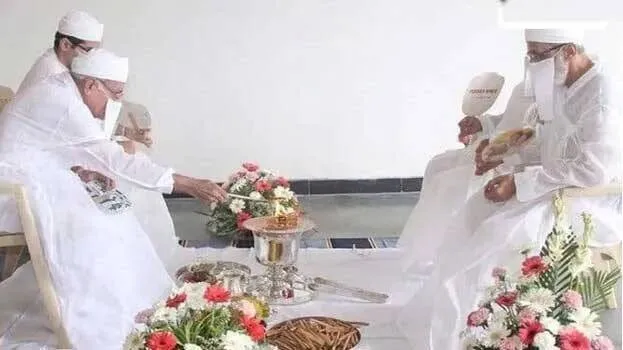

NEW DELHI: The entire country is mourning the demise of India's favorite industrialist Ratan Tata. He died last night at Breach Candy Hospital in Mumbai. He was admitted to the hospital on Monday morning due to old age ailments.
Ratan Tata's body will be taken to the National Center for Performing Arts on a funeral procession from his residence and will be kept for public viewing till 4 pm. It will then be taken to the Parsi crematorium in Worli around 4 pm. The body will be kept in the prayer hall which can accommodate around 200 people. There will be prayers for 45 minutes. He will be laid to rest then with full state honours.
Ratan Tata was born into a Parsi family in 1937 as the son of Naval Tata, adopted son of JRD Tata. Parsis follow different customs from other religious communities. They also maintain this distinction in funeral rites.
Parsis are followers of Zoroastrianism. Zoroastrianism is one of the world's oldest monotheistic religions, originating in ancient Persia. It contains both monotheism and dualism, and many scholars believe that Zoroastrianism influenced the belief systems of Judaism, Christianity, and Islam.
Parsis practice cremation practices known as 'Dokhmenashini' or 'Tower of Silence'. In this method, the body is not buried or cremated in the traditional way. Rather, the body will be laid atop a structure known as the Dakhma (Tower of Silence). In this way, the body is displayed to scavenger birds such as vultures. Zoroastrianism believes that fire and earth are sacred elements and should not be polluted by dead bodies.
After the rituals, the body is cleansed. People known as 'Nassesalars' carry the body to the Dakhma. After the corpse is eaten by vultures, the remaining bones fall into the well inside the Dakhma. In urban areas where birds such as vultures are not present, modern equipment such as solar concentrators to accelerate the decomposition process.
Allowing the body to be eaten by vultures is considered by the Parsis as the person's final act of charity. By allowing nature to take its course while preserving the sanctity of earth, fire, and water, the ritual reflects Zoroastrian respect for nature and the belief in maintaining purity after death.
Parsis believe that death is a contamination of the physical body. Although this practice is still followed by traditional Parsis, some families now opt for cremation due to practical and environmental challenges. After 1990, the decline in the number of vultures also led to the use of electric crematoriums.